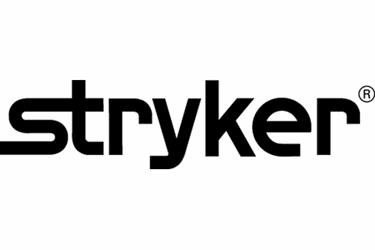Stryker Cautious On Acquisitions, Confident On Robotic Surgery
By Jof Enriquez,
Follow me on Twitter @jofenriq

Despite this year's acquisition spree, Stryker Corporation will remain financially disciplined in executing M&A deals, company executives told analysts during its third quarter earnings call recently.
Stryker reported $3 billion in cash and marketable securities for the quarter ending Sept. 30, 2016. Around 80 percent of that amount currently is held outside the United States. Stryker said it would like to repatriate that cash at some point, but to what purpose is still unclear.
"You know, we've said before about what our priorities are around capital allocation and that would mean M&A, that would mean dividends, and it may mean share buybacks. But commenting beyond that -- I don't think I can do that at this point of time," Stryker CEO Kevin Lobo told analysts, according to a Seeking Alpha transcript.
Since February, Stryker has closed a string of notable deals: hospital supplies provider Sage Products ($2.78 billion), emergency medical services (EMS) equipment manufacturer Physio-Control ($1.3 billion), Synergetics’ neurology portfolio (undisclosed amount), orthopedic oncology firm Stanmore Implants ($52 million), meniscal repair company Ivy Sports Medicine (undisclosed amount), and endoscopic instrumentation maker Instratek (undisclosed amount).
Stryker executives said during the call that these acquisitions were designed to strengthen the company's core businesses. They also touted the smooth integration of the Sage and Physio-Control portfolios and sales teams with Stryker's, which indicates that their M&A strategy is indeed sound.
"There's no change in M&A strategy, whether it's the company overall or Ortho versus MedSurg or Neurotech, it's focused on our core in key adjacent markets. If you look historically, the bulk of our deals have been in core markets with a few key adjacent acquisitions, and that will continue to be the strategy going forward across all the divisions. So no change from that," said Katherine Owen, VP of Strategy and Investor Relations.
"When we look at deals we want to strengthen every division that we have in the company, but we won't just pay whatever for companies. We're very disciplined," added Glenn Boehnlein, Stryker's CFO.
Regardless of future deals, Stryker's recent acquisitions "are performing well and contributed to solid overall earnings performance," said Lobo in a news release. "Our third quarter results again demonstrate our ability to consistently deliver strong organic sales growth at the high end of med tech.”
Stryker reported that net sales in the period grew 17.1 percent to $2.8 billion, while net earnings increased 17.9 percent to $355 million. Orthopedics net sales of $1.1 billion rose 5.6 percent, MedSurg net sales of $1.3 billion increased 33.0 percent, and Neurotechnology and Spine net sales of $0.5 billion grew 9.7 percent.
The company said it installed 30 MAKO robots globally in the third quarter, which represents a 75 percent year-over-year hike. The increase in demand was fueled by expanded indications, including total knee application, which started with a limited market launch in June, said Stryker.
About 40 percent of those MAKO orders were placed at competitive accounts, contrary to expectations that surgeons and institutions tend to stick to brands with which they have most experience. But convincing them to switch to MAKO may not be too difficult, the company found.
"It's not about whether they like Stryker or whether they like Zimmer or whether they like J&J," explained Lobo. "It's about do they like robotics and do they believe in robotics. And that's why it’s not surprising that many of the placements are in competitive shops."
Additional robotic-assisted procedures in ambulatory surgery centers and outpatient facilities could be another opportunity for further adoption.
"At this stage, MAKO hasn't had a big impact, but we do see robotics is going to have a play in all of the different aspects of the care continuum," said Boehnlein.
